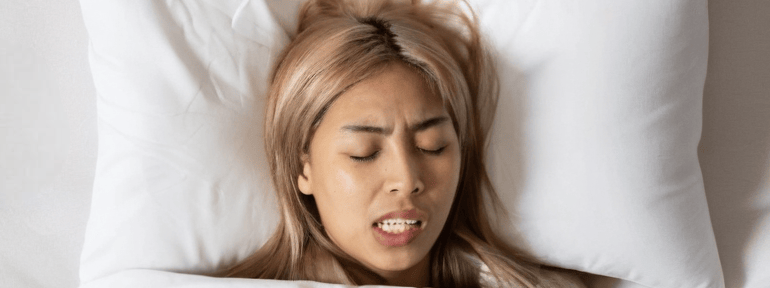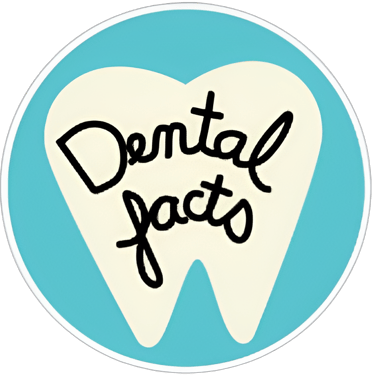How to Reduce Bruxism (Teeth Grinding)
Bruxism, or teeth grinding and clenching, can harm your dental health. To reduce it, avoid acidic foods before bedtime, improve your sleep routine, manage stress, and consider wearing a custom night guard. These measures can help protect your teeth and improve your overall well-being. Be sure to consult a dental professional for an accurate diagnosis and personalized treatment.
Bruxism, or teeth grinding and clenching, can harm your dental health. To reduce it, avoid acidic foods before bedtime, improve your sleep routine, manage stress, and consider wearing a custom night guard. These measures can help protect your teeth and improve your overall well-being. Be sure to consult a dental professional for an accurate diagnosis and personalized treatment.
3/11/2024・4 min read




Bruxism is a movement disorder that affects approximately 10% of the population and is characterized by grinding or clenching the teeth. If you suffer from bruxism, it is important to take steps to manage this condition and prevent potential negative consequences for your dental health.
In this article, we share some recommendations to help reduce bruxism. One of the most effective strategies is to identify and address the underlying factors that may be contributing to its onset.
One factor to consider is gastroesophageal reflux disease (GERD), which can cause low pH in the esophagus and lead to acidity. Research has shown that acid from GERD can trigger bruxism. For this reason, it is important to avoid foods and beverages such as alcohol, chocolate, coffee, and tobacco use—at least four hours before going to sleep. These foods and habits can increase acidity in the esophagus and potentially worsen bruxism.
Good sleep hygiene is essential in reducing bruxism. Establishing a regular sleep routine and ensuring you get enough rest can help lower the stress and tension that often trigger teeth clenching. Try creating an environment that supports restful sleep by keeping your bedroom dark, quiet, and at a comfortable temperature. Avoid using electronic devices before bedtime, since the blue light they emit can interfere with sleep quality.
Managing stress is also a key factor in reducing bruxism. Emotional stress and anxiety frequently contribute to teeth grinding. Find activities that help you relax, such as yoga, meditation, or deep breathing exercises. You may also want to consider talking with a mental health professional to receive support and learn effective stress management techniques.
Another important recommendation is the use of a night guard (dental splint). This oral appliance is worn while sleeping and helps protect the teeth by reducing the effects of grinding and clenching. It is best to consult your dentist, who can evaluate your condition and recommend the most suitable type of night guard for your needs.
In summary, bruxism can negatively affect your oral health; however, there are several strategies you can implement to manage this condition. Avoiding foods and habits that increase acidity, practicing good sleep hygiene, managing stress, and using a custom night guard are useful steps. Remember, it is important to consult with a dental professional for an accurate diagnosis and a personalized treatment plan.




Bruxism is a movement disorder that affects approximately 10% of the population and is characterized by grinding or clenching the teeth. If you suffer from bruxism, it is important to take steps to manage this condition and prevent potential negative consequences for your dental health.
In this article, we share some recommendations to help reduce bruxism. One of the most effective strategies is to identify and address the underlying factors that may be contributing to its onset.
One factor to consider is gastroesophageal reflux disease (GERD), which can cause low pH in the esophagus and lead to acidity. Research has shown that acid from GERD can trigger bruxism. For this reason, it is important to avoid foods and beverages such as alcohol, chocolate, coffee, and tobacco use—at least four hours before going to sleep. These foods and habits can increase acidity in the esophagus and potentially worsen bruxism.
Good sleep hygiene is essential in reducing bruxism. Establishing a regular sleep routine and ensuring you get enough rest can help lower the stress and tension that often trigger teeth clenching. Try creating an environment that supports restful sleep by keeping your bedroom dark, quiet, and at a comfortable temperature. Avoid using electronic devices before bedtime, since the blue light they emit can interfere with sleep quality.
Managing stress is also a key factor in reducing bruxism. Emotional stress and anxiety frequently contribute to teeth grinding. Find activities that help you relax, such as yoga, meditation, or deep breathing exercises. You may also want to consider talking with a mental health professional to receive support and learn effective stress management techniques.
Another important recommendation is the use of a night guard (dental splint). This oral appliance is worn while sleeping and helps protect the teeth by reducing the effects of grinding and clenching. It is best to consult your dentist, who can evaluate your condition and recommend the most suitable type of night guard for your needs.
In summary, bruxism can negatively affect your oral health; however, there are several strategies you can implement to manage this condition. Avoiding foods and habits that increase acidity, practicing good sleep hygiene, managing stress, and using a custom night guard are useful steps. Remember, it is important to consult with a dental professional for an accurate diagnosis and a personalized treatment plan.



